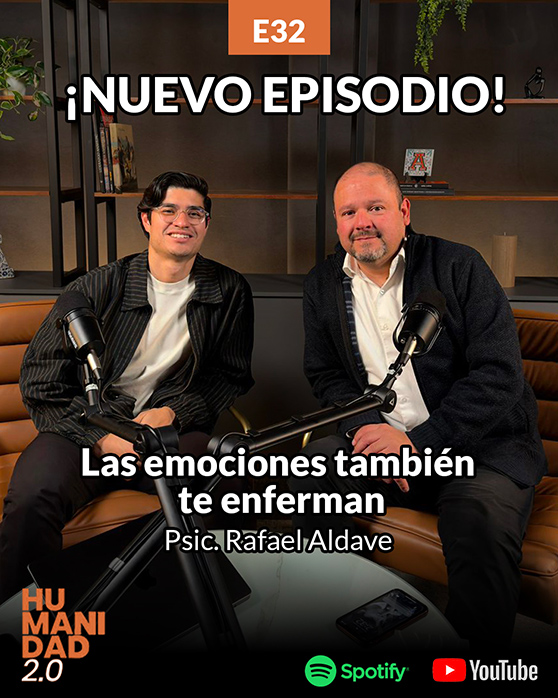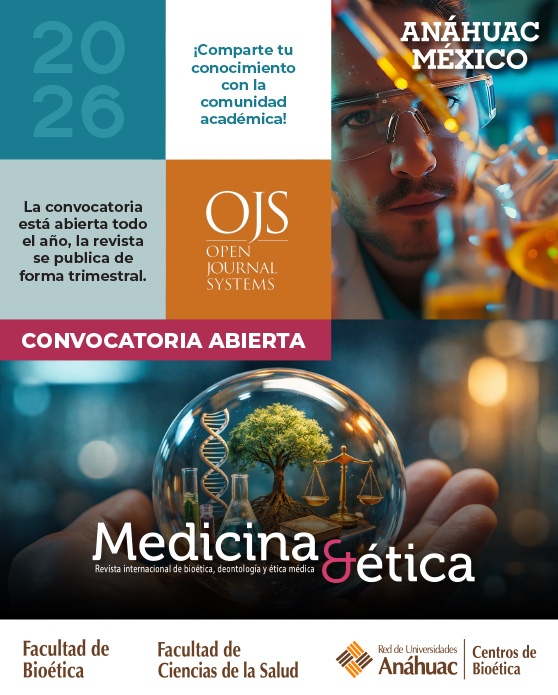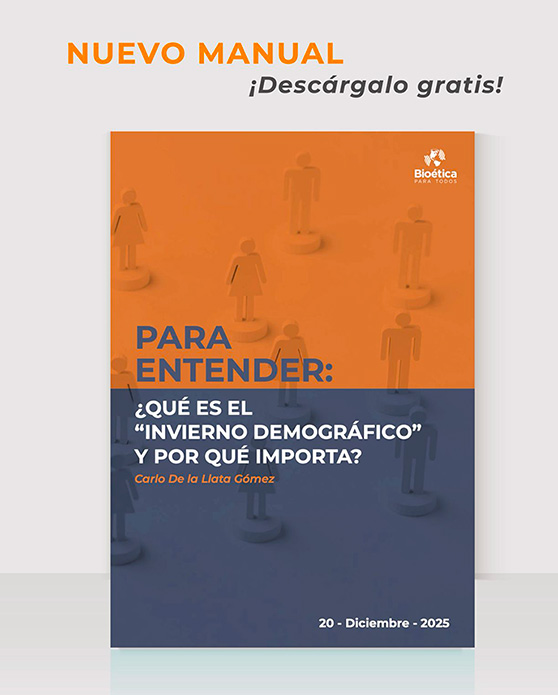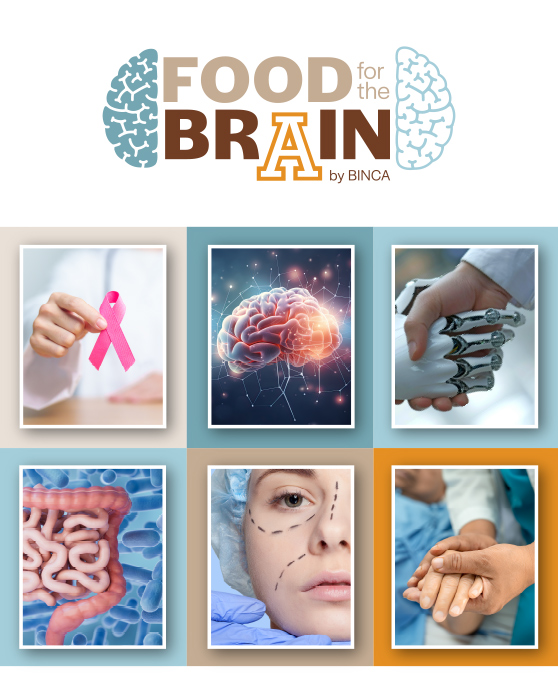
September 24, 2025
Authors: Víctor Hugo Cabrera Espinosa and Juan Manuel Palomares Cantero
Versión en español
Introduction
Within the horizon of Razón Abierta (“Open Reason”), the health sciences cannot be confined to mere technical efficiency or the application of protocols, for their deepest mission is measured by their capacity to safeguard truth, recognize the person, orient action toward the good, and open themselves to meaning. Meaning is the integrating axis that allows health to be understood not only as the absence of disease, but as a path on which human life is interpreted, accompanied, and dignified. By making this possible through attitudinal habits, the physician transcends himself through a deliberate act of love toward the vulnerable patient; thus, he fills his decisions and actions with meaning. The practice of this compassion is meritorious on the natural level and even on the supernatural level. To speak of meaning in healthcare, therefore, is to inquire into what gives coherence to existence amid fragility and suffering, and to ask what it means to heal, to care, and to accompany beyond immediate results. From this perspective, recovering meaning is indispensable if medicine and related disciplines are to remain faithful to their humanizing vocation in the contemporary world.
Meaning as an Anthropological Category
Meaning is an essential anthropological category for understanding the experience of health and suffering. Viktor Frankl showed that even amid the most radical pain, life retains its value when there is a “why” that sustains the “what for” or “for whom” of existence. In clinical practice, this means that patients do not seek merely technical data, but an orientation that gives significance to their illness and care. From a realist standpoint, Robert Spaemann distinguished between what is good in a relative sense—useful for immediate ends—and what is good in an absolute sense—valuable in itself and the ultimate criterion for action. Along the same lines, Elio Sgreccia recalled that every intervention must respect the unity of body, psyche, and spirit, while Juan Manuel Burgos and Martha Tarasco have insisted that the centrality of the person is the true core from which health and suffering are interpreted.
When this horizon is eclipsed, however, the health sciences fall into reductionisms that obscure their mission. Robert Spaemann warned that the good cannot depend on shifting consensuses, and Burgos pointed out that dignity is non-negotiable and not the product of conventions. Tarasco emphasized that care cannot be reduced to technocratic paternalism, for it is always woven through co-responsibility, and Sgreccia insisted that the patient must be recognized as a decision-making subject. Eduardo Ortiz Llueca showed how instrumental utilitarianism turns rationality into a mere calculation of means and ends, with the risk of depersonalizing the patient, while Luis Miguel Pastor proposes recovering the centrality of the virtues to restore the humanizing orientation of medical practice. Recovering meaning ultimately implies placing the person back at the center and overcoming the cold logic of mere efficiency. Indifference, utilitarianism, conformism, and the normalization of the banal are the enemies to be overcome.
Suffering and the Radical Question of Meaning
Suffering is a privileged place where the question of meaning emerges with radical force. Eric Cassell reminded us that medicine’s mission is not limited to curing diseases; it also involves relieving suffering, understood as a threat to the integrity of the person in all dimensions. Physical pain can be mitigated with drugs, but suffering transcends biology and demands accompaniment, listening, and horizons of meaning. Viktor Frankl showed that even in extreme circumstances, life preserves its value if there is a “why” that sustains the “what for” or the “for whom” of one’s existence, and Robert Spaemann underscored that what is truly good cannot be reduced to utility, but refers to what is valuable in itself. In this horizon, Emmanuel Lévinas spoke of the face of the other as an epiphany that calls and demands responsibility, showing that ethics begins in the recognition of the vulnerable neighbor. Thus, accompanying the patient in fragility is not an accessory act but the very core of care, for it reveals that we are constitutively relational beings and that, even in extreme weakness, meaning can open as a path of dignification and communion.
This dimension is linked to the importance of narrative in the construction of identity. Paul Ricoeur stressed that understanding ourselves entails telling our story, and in the realm of health this insight has special value: patients do not only seek diagnoses, but to integrate the illness into the plot of their lives. Howard Brody and Arthur Kleinman showed how illness narratives allow suffering to be re-signified and control to be regained, making the health professional a humanizing companion—one who provides holding and resilience—rather than a mere technician. Martha Tarasco adds that vulnerability is not a simple social label but the expression of a shared ontological fragility, visible in threatened corporeality. Recognizing this condition allows us to understand each medical history as a tale of vulnerability and resistance. In this vein, Juan Manuel Burgos insists that care must keep the person at the center rather than partial criteria of utility or efficiency. Giving the patient a voice means restoring their place as protagonist of their own existence, showing that meaning is not imposed from outside but discovered in dialogue and in the bonds that sustain life even amid pain. This does not mean assuming the role of a psychotherapist, but rather “being with the patient” with deep regard, active listening, and proactive compassion.
Enduring Values as the Foundation of Meaning
For meaning to illuminate healthcare practice, it must be anchored in enduring values that do not depend on fleeting consensuses but are recognized as part of human experience. Dignity reminds us that every patient is an end in himself or herself and never a means; solidarity shows that suffering is transformed when it is shared; hope teaches us to discover possibilities for good even at the limits; and transcendence reveals that human life surpasses mere biology and productivity. As Alasdair MacIntyre noted, these are “internal goods of the practice” that fulfill care beyond external rewards. In the same direction, Elio Sgreccia insisted that every healthcare action must safeguard the integral unity of the person, and Martha Tarasco emphasized that recognizing our shared vulnerability allows us to weave bonds of respect and responsibility.
These values take concrete shape in virtues that enable the professional to be more than a technician: prudence to deliberate well amid complexity; compassion to accompany with empathy; justice to guarantee equity; and fortitude to remain steadfast before one’s own and others’ suffering. Edmund Pellegrino and David Thomasma reminded us that medicine, at its root, is a moral act before it is a technical one, and therefore formation in virtue is indispensable to integrate scientific competence with ethical orientation. Only in this way can each intervention contribute to the patient’s dignification, keeping alive the horizon of meaning that gives coherence and humanity to healthcare practice.
Meaning in Health Professional Education
>
Training in the health sciences has privileged the technical while neglecting the humanizing dimension that requires accompanying the patient in his or her existential complexity. Hence the urgency of recovering educational spaces where meaning has a central place. Resources such as ethics seminars, communities of interdisciplinary dialogue, case analyses, and narrative workshops can prepare professionals capable of integrating innovation and humanity, ensuring that each person is treated in his or her uniqueness.
Conclusion
Ultimately, recovering meaning in the health sciences requires reorienting both practice and education toward a horizon that integrates truth, the good, and personal dignity in the face of contemporary complexity. Medicine reaches its true vocation when care is understood as accompaniment that listens, recognizes vulnerability, and is inspired by firm ethical convictions. From this perspective, Razón Abierta offers a fertile framework for articulating science and ethics, profession and humanism, and reason with hope in a single project: to protect life and affirm its value in every circumstance.
Víctor Hugo Cabrera Espinosa holds a B.A. in Psychology from the National Autonomous University of Mexico, an M.A. in Philosophy from Universidad Anáhuac México Sur, and is a doctoral candidate in Leadership and Management of Higher-Education Institutions. He completed a Diploma in Integral Humanism for Educators and has coordinated humanities courses at Universidad Anáhuac. With more than twenty years of teaching experience, he has taught undergraduate and graduate courses in philosophy and psychology and has been recognized for academic excellence. As a clinical psychologist, he has collaborated with mental-health institutions. He is currently a full-time professor in the Academic Directorate of Integral Formation at Universidad Anáhuac México.
Juan Manuel Palomares Cantero is a lawyer with a master’s and a doctorate in Bioethics from Universidad Anáhuac, Mexico. He served as Human Capital Director, Director, and General Coordinator at the Faculty of Bioethics. He is currently a researcher at the Academic Directorate of Integral Formation at the same university. He is a member of the Mexican National Academy of Bioethics and of the Latin American and Caribbean Federation of Bioethics Institutions.
This article was assisted in its drafting using ChatGPT, an artificial intelligence tool developed by OpenAI.
The opinions expressed in this blog are the sole responsibility of the authors and do not necessarily represent CADEBI’s official position. As an institution committed to inclusion and plural dialogue, CADEBI promotes and disseminates a diversity of voices and approaches, convinced that respectful and critical exchange enriches our academic and formative work. We value and encourage all comments, responses, or constructive critiques you may wish to share.
1. Frankl, V. E. (2004). El hombre en busca de sentido (25.ª ed., trad. C. Martín). Herder. (Trabajo original publicado en 1946)
2. Spaemann, R. (2001). Felicidad y benevolencia (M. Otero, Trad.). Rialp. (Trabajo original publicado en 1989), Spaemann, R. (2005). Lo natural y lo racional. Ensayos de antropología (J. A. Merino, Trad.). Rialp. (Trabajo original publicado en 1981)
3. Sgreccia, E. (2009). Manual de bioética: fundamentos e ética biomédica. Principia Editora.
4. Burgos, J. M. (2020). ¿ Qué es el personalismo integral?. Quién. Revista de filosofía personalista, (12), 9-37.
5. Tarasco Michel, M. (2014). Bioética de la vulnerabilidad: fundamentos y aplicaciones. Universidad Panamericana.
6. Ortiz Llueca, E. (2016). Bioética y dignidad humana: Crítica al utilitarismo en el ámbito sanitario. Universidad Católica de Valencia San Vicente Mártir.
7. Pastor, L. M. (2013). De la bioética de la virtud a la bioética personalista:¿ una integración posible?. Cuadernos de bioética, 24(1), 49-56.
8. Cassell, E. J. (1998). The nature of suffering and the goals of medicine. Loss, Grief & Care, 8(1-2), 129-142.
9. Lévinas, E. (1993). Totalidad e infinito: Ensayo sobre la exterioridad (M. García-Baró, Trad.). Sígueme. (Trabajo original publicado en 1961)
10. Brody, H. (2002). Stories of sickness. Oxford University Press.
11. MacIntyre, A. (2007). After virtue: A study in moral theory (3rd ed.). University of Notre Dame Press. (Trabajo original publicado en 1981)
12. Pellegrino, E. D., & Thomasma, D. C. (1993). The virtues in medical practice. Oxford University Press.
Más información:
Centro Anáhuac de Desarrollo Estratégico en Bioética (CADEBI)
Dr. Alejandro Sánchez Guerrero
alejandro.sanchezg@anahuac.mx






